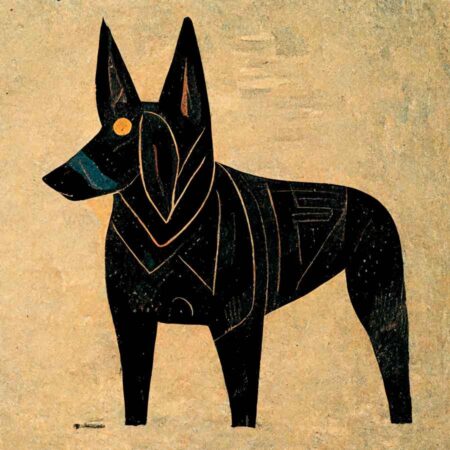Your cart is currently empty!
Shetland Sheepdog Art And T-Shirts
Explore our collection of Shetland Sheepdog art and clothing.
-
 Vincent Van Gogh Style Pug T-Shirt
Vincent Van Gogh Style Pug T-Shirt -
 Vincent Van Gogh Style Pug T-Shirt
Vincent Van Gogh Style Pug T-Shirt -
 Rembrant Style Pug Poster
Rembrant Style Pug Poster -
 Vincent Van Gogh Style Labrador T-Shirt
Vincent Van Gogh Style Labrador T-Shirt -
 Vincent Van Gogh Style Labrador T-Shirt
Vincent Van Gogh Style Labrador T-Shirt -
 Vincent Van Gogh Style Labrador Poster
Vincent Van Gogh Style Labrador Poster -
 Paul Cezanne Style Labrador T-Shirt
Paul Cezanne Style Labrador T-Shirt -
 Paul Cezanne Style Labrador T-Shirt
Paul Cezanne Style Labrador T-Shirt -
 Paul Cezanne Style Labrador Poster
Paul Cezanne Style Labrador Poster -
 Paul Cezanne Style Basset Hound T-Shirt
Paul Cezanne Style Basset Hound T-Shirt -
 Paul Cezanne Style Basset Hound T-Shirt
Paul Cezanne Style Basset Hound T-Shirt -
 Jean-Michel Basquiat Style Labrador T-Shirt
Jean-Michel Basquiat Style Labrador T-Shirt -
 Vincent Van Gogh Style French Bulldog Poster
Vincent Van Gogh Style French Bulldog Poster -
 Vincent Van Gogh Style Corgi Poster
Vincent Van Gogh Style Corgi Poster -
 Rembrant Style Corgi Poster
Rembrant Style Corgi Poster -
 Pablo Picasso Style Corgi T-Shirt
Pablo Picasso Style Corgi T-Shirt -
 Pablo Picasso Style Corgi T-Shirt
Pablo Picasso Style Corgi T-Shirt -
 Paul Cezanne Style Cocker Spaniel T-Shirt
Paul Cezanne Style Cocker Spaniel T-Shirt -
 Paul Cezanne Style Cocker Spaniel T-Shirt
Paul Cezanne Style Cocker Spaniel T-Shirt -
 Rembrant Style Basset Hound Poster
Rembrant Style Basset Hound Poster -
 Vincent Van Gogh Style German Shepherd Poster
Vincent Van Gogh Style German Shepherd Poster -
 Vincent Van Gogh Style German Shepherd Poster
Vincent Van Gogh Style German Shepherd Poster -
 Pablo Picasso Style German Shepherd Poster
Pablo Picasso Style German Shepherd Poster -
 Claude Monet Style French Bulldog Poster
Claude Monet Style French Bulldog Poster
What Other Dogs Are There?
Basset Hound // Belgian Malinois // Miniature American Shepherd // Havanese // Shih Tzu // Siberian Huskies // Beagle // Bernese Mountain Dog // Bloodhound // Boston Terrier // Bulldog // Springer Spaniels // Labradors // Cocker Spaniel // Corgi // Doberman Pinschers // Golden Retrievers // Schnauzers // Pugs // Rhodesian Ridgeback // Rottweiler // Cavalier King Charles Spaniel // Weimeraner // Border Collie // Boxer // Cane Corso // Chihuahua // Dachshund // Dalmatian // French Bulldog // German Shepherd // Great Dane // Maltese // Mastiff // Pointer // Pomeranian // Poodle // Shetland Sheepdog // Vizsla // Yorkshire Terrier
What is A Shetland Sheepdog?
A Shetland Sheepdog, also known as a Sheltie, is a small herding dog that originated in the Shetland Islands, a group of islands off the coast of Scotland. The Sheltie is a loyal, intelligent, and active breed devoted to its family. They are highly trainable and adaptable, making them great companions for active individuals and families. Shelties are known for their thick double coats, which come in various colors and patterns.
Are Shetland Sheepdogs Friendly With Children?
Yes, Shetland Sheepdogs are usually friendly with children. They make excellent family pets and are known for their loyalty and affection.
How Long Does A Shetland Sheepdog Live?
The average lifespan of a Shetland Sheepdog, also known as a Sheltie, is around 12 to 14 years.
Are Shetland Sheepdogs Hypoallergenic?
Yes, Shetland Sheepdogs are considered to be hypoallergenic. They have a coat that does not shed very much, which helps to reduce the amount of allergens that are released into the air.
Are Shetland Sheepdogs Aggressive?
No, Shetland Sheepdogs are not generally aggressive. They are known for being gentle, loyal, and intelligent dogs. They are generally friendly with people and other animals, though they can be protective of their families. They make great family pets and are usually very devoted to their owners.
When Does A Shetland Sheepdog Stop Growing?
Shetland Sheepdogs will typically reach their full adult size by one year of age, although some may continue to fill out until about 18 months.
How Much Should A Shetland Sheepdog Weigh?
The average weight of a Shetland Sheepdog is between 15 and 25 pounds.
Do Shetland Sheepdogs Bark A Lot?
Shetland Sheepdogs, also known as Shelties, are a relatively vocal breed, they can bark more than some other breeds. They are known to bark when they need to alert their owners to something, when they are excited, when they are herding other animals, or when they are protecting their territory. Shetland Sheepdogs are herding dogs, and their natural tendency to herd can manifest in excessive barking if not appropriately trained. With proper training and socialization, Shelties can be trained to minimize extreme barking. They are known to respond well to positive reinforcement training, and with consistent training, they can learn to control their barking.